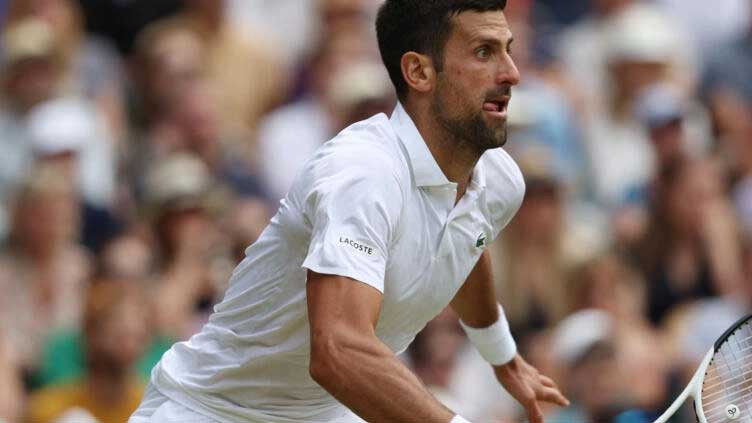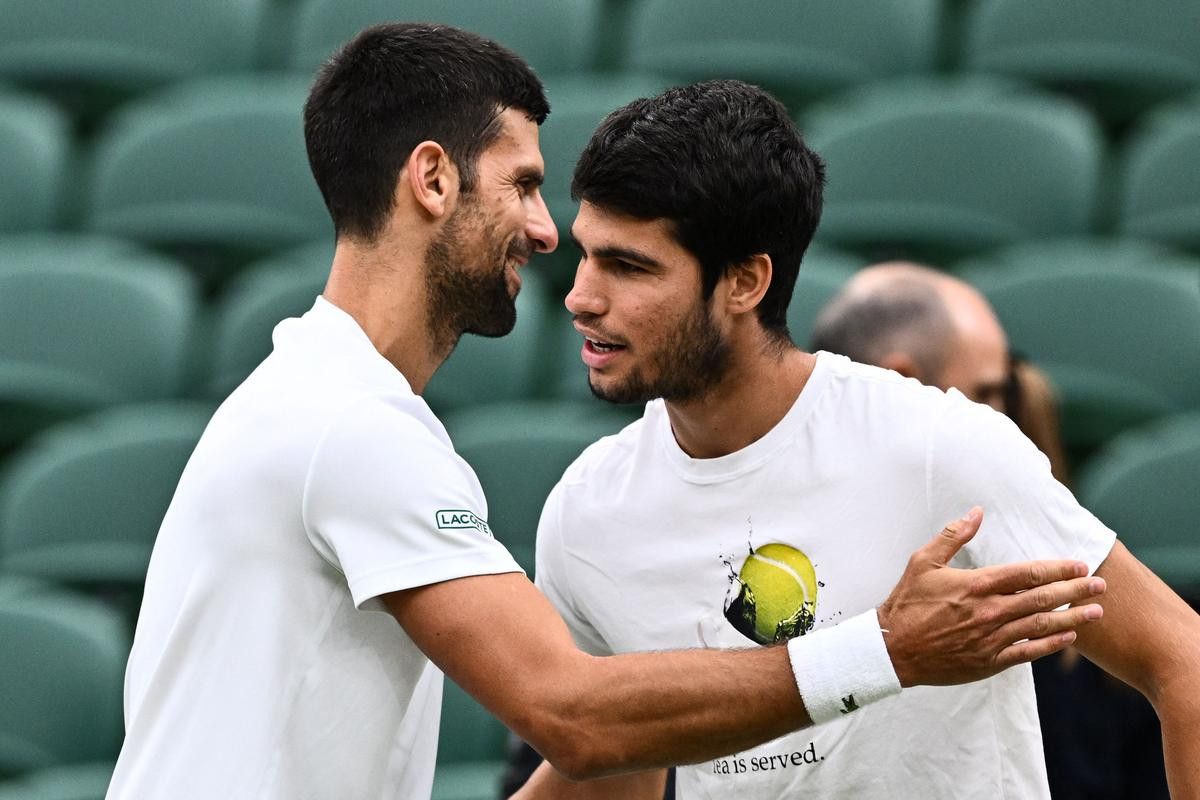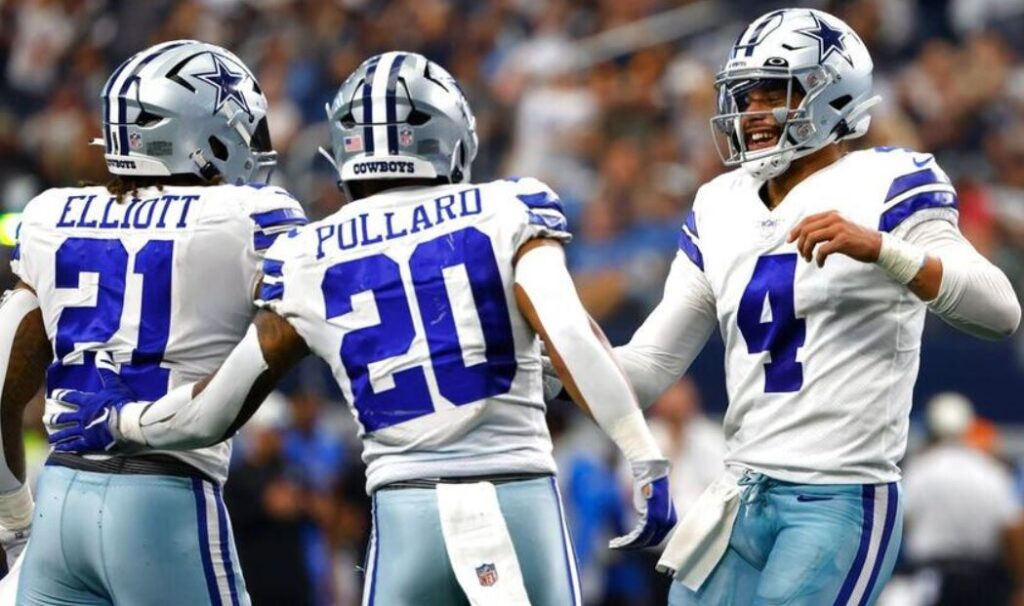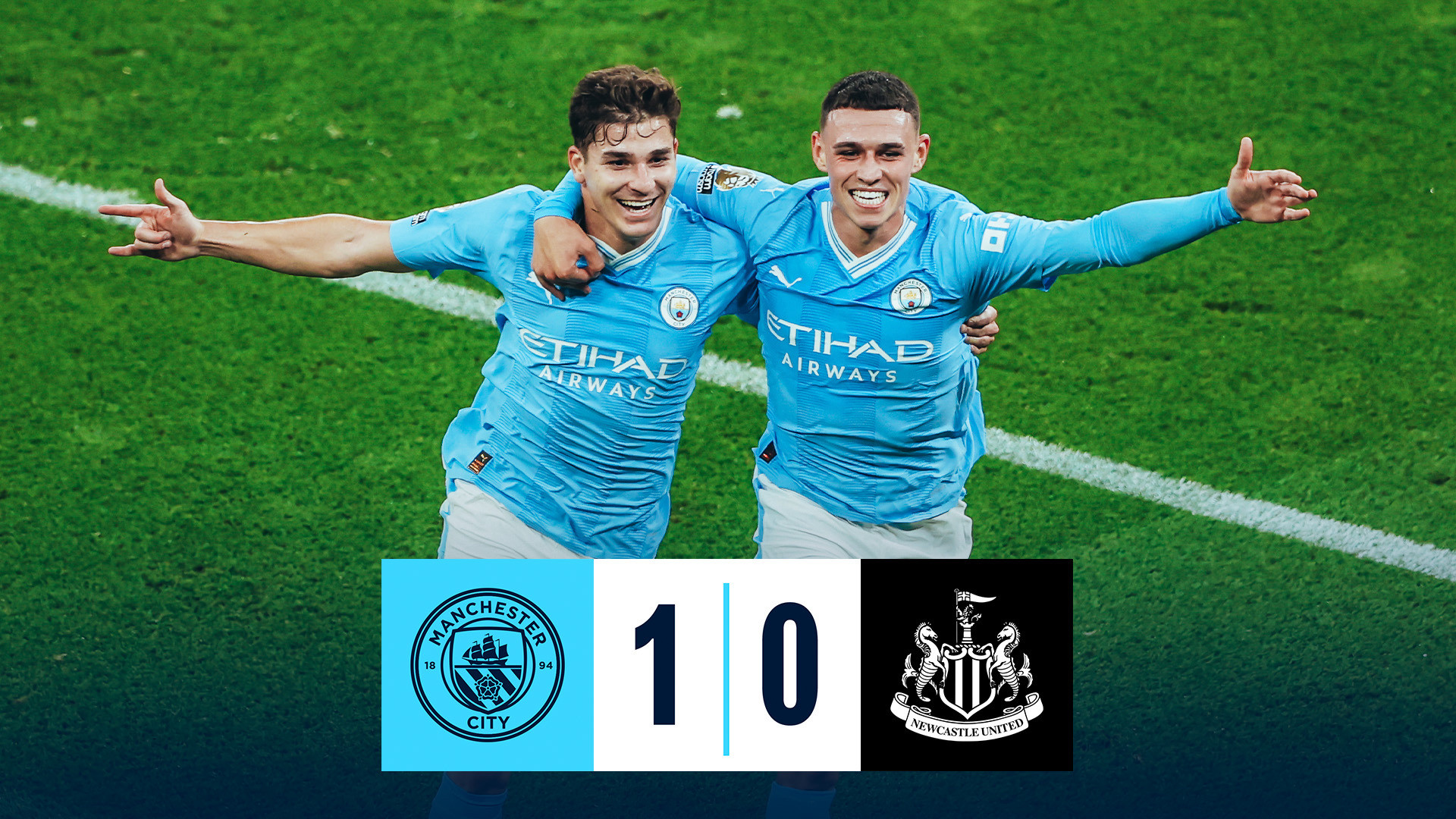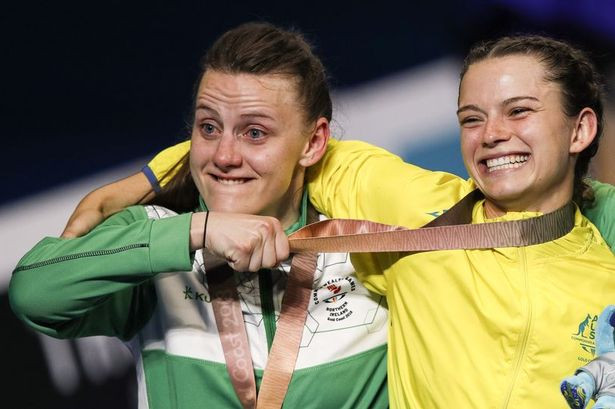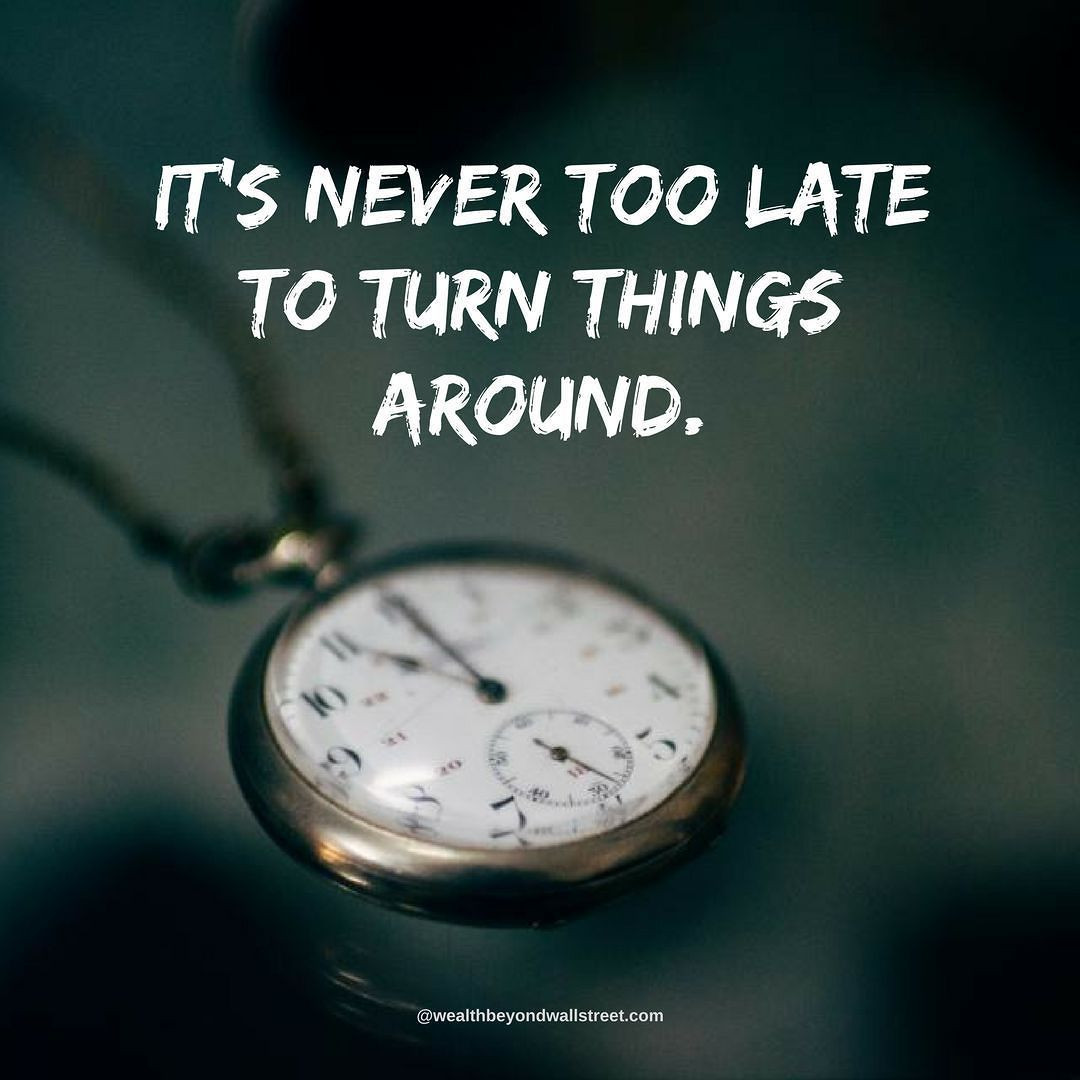Djokovic's Olympic Redemption: Tears of Joy and a Blockbuster Gold Medal Showdown with Alcaraz
There they go again.
For the second time in three weeks, Novak Djokovic and Carlos Alcaraz will do battle for one of the biggest prizes in tennis.
When they meet in the Paris 2024 Olympics gold medal match at Roland Garros, on Sunday around 1 p.m. UK / 8 a.m. ET, they will open the latest chapter in their inter-generational duel.
The man atop the all-time tennis heap; the young buck ruling the current one.
Logic holds that there isn’t much time left for these sorts of battles, especially not at the Olympics. Djokovic is 37. As ageless as he can seem, it’s hard to see a gold-medal duel with Alcaraz happening in Los Angeles in four years’ time, though don’t put it past him.
Alcaraz, 21, seemingly has a decade or more of supremacy ahead of him, ready to be built on top of his domination of men’s tennis this spring and summer.
On Sunday they will do something that is becoming increasingly rare, even in the short time they have been facing each other at the top of the sport. They will play for a prize that neither of them has — and it isn’t a title at some random tour stop where both of them happen to be.
For Djokovic, the gold medal is the rare tennis bauble that he somehow doesn’t have. It’s all that’s missing from a mantle crowded with 24 Grand Slam titles, and a lonely bronze in singles from 2008 is all he has to show for his four previous appearances in the Olympic tournament.
He’s played professional tennis for 20 years. He’s played in 49 Grand Slam semifinals and won 37 of them. Until Friday evening against Lorenzo Musetti of Italy, he’d never won one at the Olympics. When he did, with a last, blasted forehand down the line, he collapsed on his back in the red clay.
He clutched his fists and fought to hold back his tears but lost that one, as the Serbian flags waved and the crowd chanted: “NOVAK, NOVAK!”
There is no way to overstate how much this tournament means to him, especially given that it looked like a pipe dream two months ago when he tore his meniscus on this same court and had to undergo an operation and a high-speed rehabilitation that both risked and saved his summer.
Djokovic's Road to Redemption
For Alcaraz, it’s the next piece of hardware accumulation that will allow him to, as he put it last month at Wimbledon, “sit at that table” with Djokovic and the rest of the all-time greats. He has a chance to become one of three players to win the French Open, Wimbledon and the Olympic tournament in the same year. Rafael Nadal and Steffi Graf are the others.
“Two legends from sport,” Alcaraz said. “I will try not to think of every stat, the things I could achieve.”
On Friday he played as though he already has a place setting at that table — or maybe even owned it — blowing through Felix Auger Aliassime 6-1, 6-1 with a frightening ferocity that he has recently acquired, especially in the latter stages of tournaments.
In bright sunshine and swelteringly humid air at Roland Garros on Friday, both sets followed a pattern to a tee, as if Alcaraz had scripted them. Lose a game while returning; win a game on serve. In the second set, the other way round. Then, spend five games pulling Auger-Aliassime all about the court, discombobulating his game plan until he’s throwing in new ideas like he has to do, but not having any of them work, getting more and more confused until he looks across the net and it’s 1-5 and it’s over.
He basically did this same thing to Auger-Aliassime, a deceptively excellent clay court player, on this same court back in the fourth round of the French Open in June. Auger-Aliassime is just 23, only a few years removed from being considered destined for big titles.
Now he is looking at years of afternoons like Friday coming at him. No fun.
“I knew I had to start the match well, really focusing on every point, trying to play with a lot of intensity,” Alcaraz said. “I didn’t think it was going to be like that.”
Djokovic played a different kind of all-time great tennis. He survived an increasingly dangerous opponent, one night after a few bad steps had him wondering if he’d done his knee again during his quarterfinal win over Stefanos Tsitsipas. “Very worried,” he had said, after suffering sharp pain that only subsided with the help of painkillers during that match.
He had the knee examined Friday but appeared to moving without hindrance for most of the night. On Thursday, he said he was going to “ pray to God for everything to be OK.” Those prayers were seemingly answered.
A Battle of Titans
Djokovic and Musetti, who played in the semifinals at Wimbledon last month, played full-gas, big-boy tennis for most of two hours. Djokovic’s chest heaved after points, just as it did last time they met on this court, when they contested the latest finish in French Open history.
He had to take extra time to catch his breath and got a warning and a first-serve penalty for it, and then a code violation warning after an exchange with the chair umpire, Jaume Campistol.
This was what stressed out Djokovic looks like — the Djokovic who wants something desperately, something rare and unfamiliar, and wants it badly enough that his nerves begin to sap his energy. He yelled at his Serbian coaches and teammates repeatedly, imploring them to make more noise and give him the boost he needed.
Musetti matched him shot for shot until the final points of the first set, he hit an easy putaway right back and Djokovic, who paddled it back and somehow won the point. A sloppy drop shot from Musetti gave Djokovic the lead he so rarely relinquishes, and he didn’t start to do so Friday, winning 6-2 despite losing his serve twice in the second set. His head-to-head against Musetti, who always seems to test Djokovic, is now at 7-1.
That ascent to the top of the all-time tennis heap has accumulated a lot of scar tissue, creating a generation of players who, where Djokovic perceives a chain of victories, they see one single catastrophe, which keeps piling wreckage and hurls it in front of their feet. No more was this in evidence than against Tsitsipas, who led an ailing Djokovic 4-0 and then 5-3, 40-0 in their second set, before withdrawing into himself and withering.
Djokovic knows that what is coming next is his own recent catastrophe, a test against the player who served him a chastening reminder of reality at the All England Club just weeks ago. Still, the Serbian is able to refer to Alcaraz as part of “the next, next, next, generation”, his half-sneering shorthand for how many have come before only to have him swat them away. He knows Alcaraz (as well Italian Jannik Sinner, who skipped the Olympics with tonsilitis) are different, playing at a level he has not been able to reach all year.
The Last Stand
He knows he’s going to need to get there, somehow, and he knows that he needs to convince himself that it’s possible, just as he once convinced himself he could overtake Nadal and Roger Federer.
It’s the only way to get just about the only thing he does not have.
Additional reporting by James Hansen




